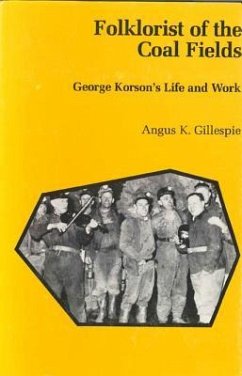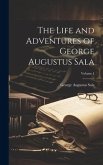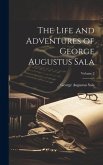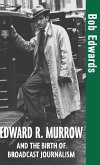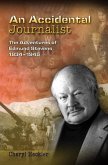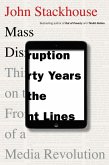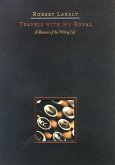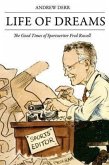The pioneer collector of the songs and stories of the coal miners, George Korson (1899 1967) was also a leader many say the leader in correcting the onetime rural and Anglo-American bias in U.S. folklore studies. Korson won the highest honors in the scholarly world, despite his humble origin as a poor Jewish immigrant boy from the Ukraine, his self-training as a folklorist while working as a newspaperman, and his quiet challenge to the folklore establishment. Among the first biographies of American folklorists, this book recounts a colorful life story, a heroic personal achievement, and a significant contribution to the recognition of industrial folklore. During forty-three years of full-time journalistic employment, Korson wrote five definitive books on coal mining folklore as well as many articles; started the Library of Congress archive of miners' songs and ballads with his wife, a musicologist; founded and directed the Pennsylvania Folk Festival; and helped launch the National Folk Festival. He was awarded a University of Pennsylvania Citation in 1949, a Guggenheim Fellowship in 1957, a University of Chicago Folklore Prize in 1961, and an Israeli Service Ribbon in American Folklore Society in 1960. The story begins with Korson's three years as a reporter on the Wilkes-Barre Record after his graduation from high school in that city, his two years with the Jewish Legion in Palestine and Egypt during World War I, and his single year at Columbia University. Then come his studies of mining folklore both in the eastern Pennsylvania anthracite fields and in the bituminous fields of the South and Midwest while he worked as a reporter in Pottsville and Allentown, PA., in New Jersey, and as chief editor of Red Cross publications. Korson's intellectual outlook is shown as two-sided: on one hand, an understanding that folklore is best presented in the holistic context of a community's way of life; on the other, a conviction that reform is more congruent with American social ideals than revolution. Folklorist of the Coal Fields is a treasury of information for the folklorist and the Pennsylvania history fan, as well as a source of inspiration for younger readers. It is illustrated with forty photographs of George Korson's life and the coal fields environment, plus two maps."
Hinweis: Dieser Artikel kann nur an eine deutsche Lieferadresse ausgeliefert werden.
Hinweis: Dieser Artikel kann nur an eine deutsche Lieferadresse ausgeliefert werden.

